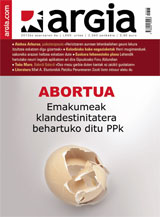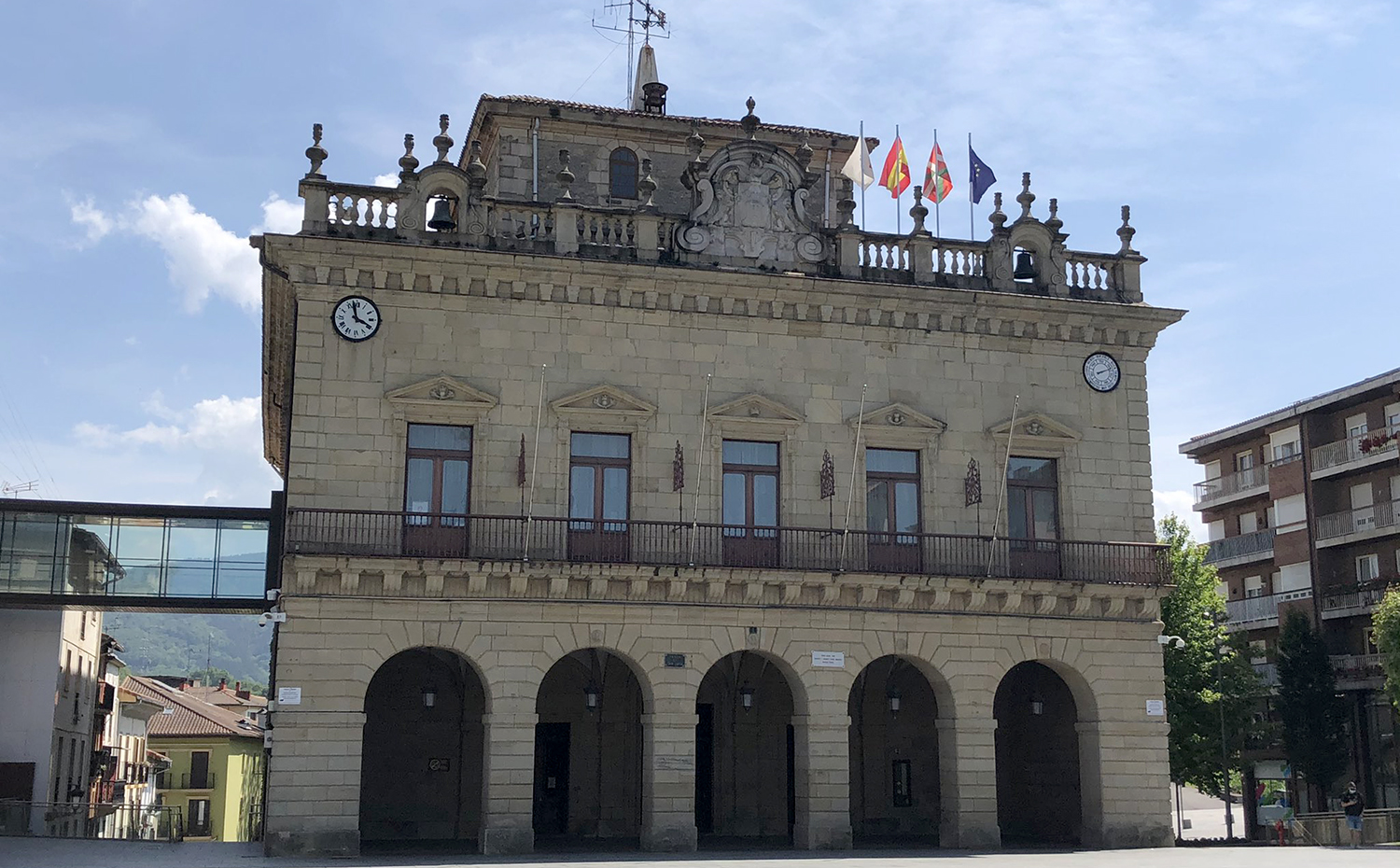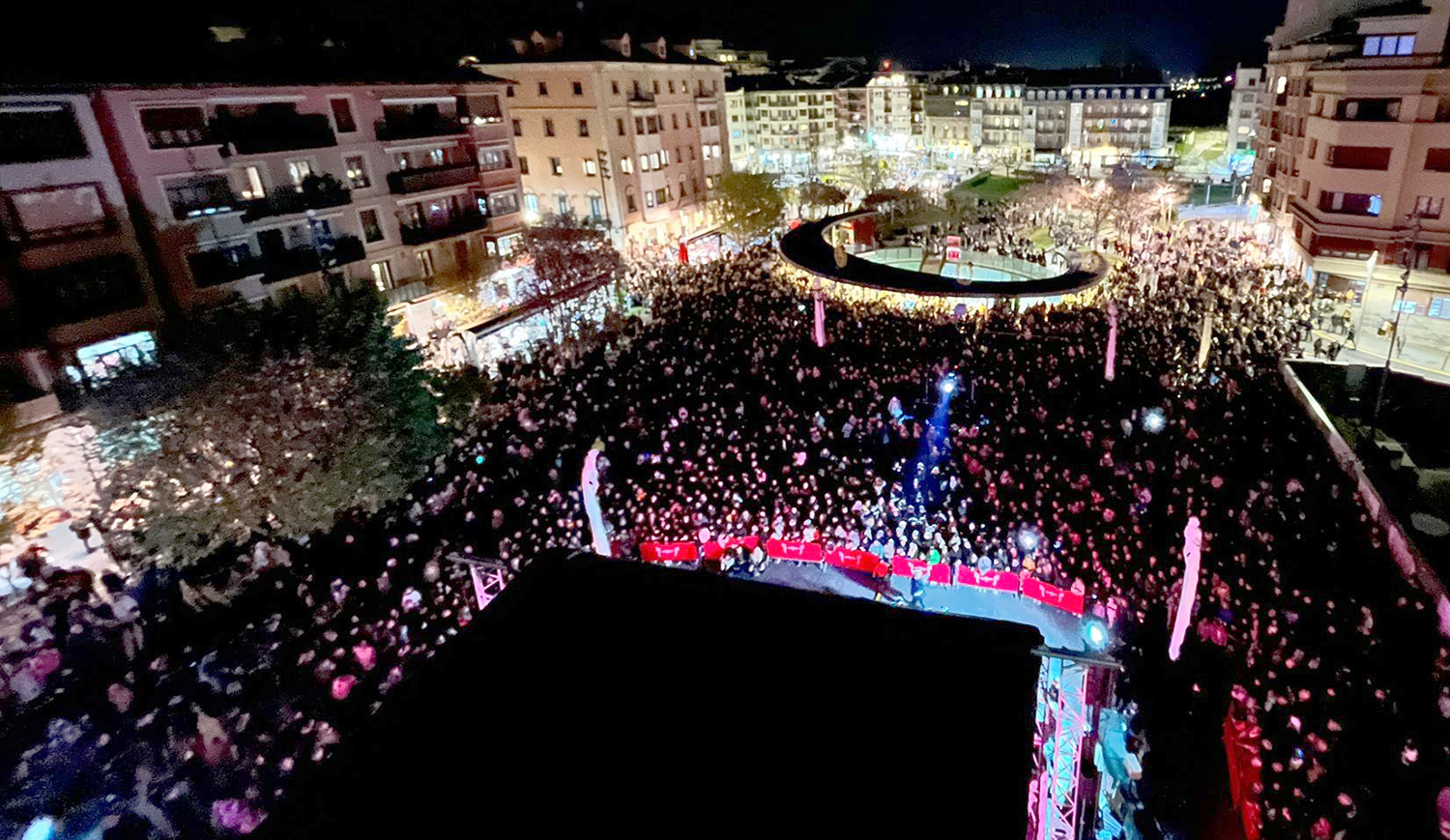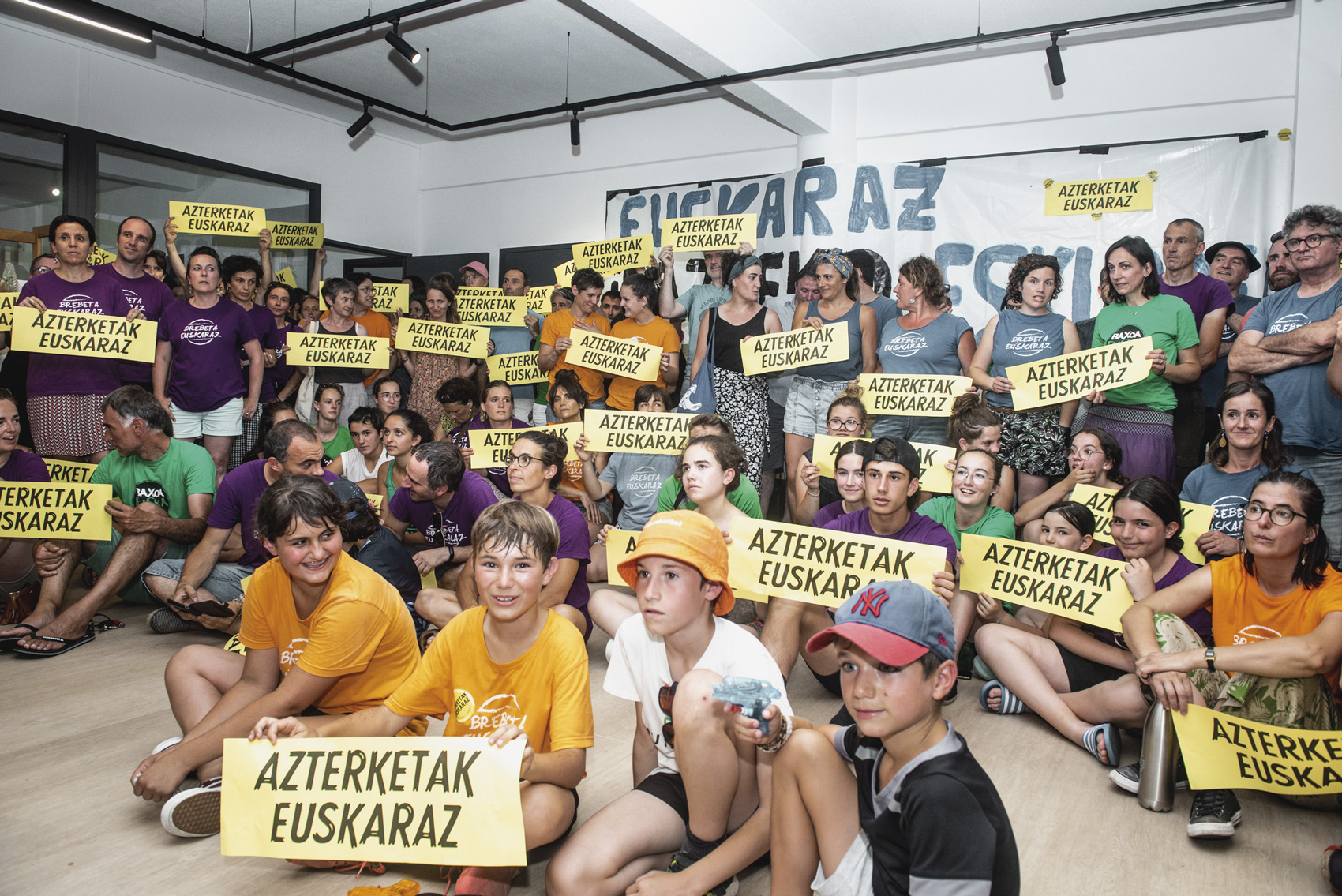Steps to prioritize Euskera in the Council of Gipuzkoa
- The measures proposed by the Provincial Council of Gipuzkoa to give priority to the Basque country have given much to talk about in recent weeks. There are two measures that have caused the most dust: to give press conferences in Basque and to include the language profile in public procurement. However, the linguistic policy of the Member takes up much more than that.
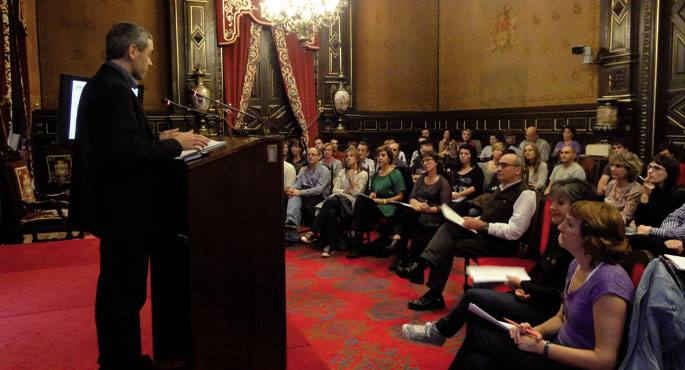
The Provincial Council of Gipuzkoa has expressed its intention to give priority to the Basque Country, since Gipuzkoa is an Basque territory, which half of the citizens know it and another 16.4% understand it. In addition to the internal work already under way, a number of measures have been announced in October and will be implemented thereafter. Two of these measures have generated much controversy and criticism: the issuance of press conferences in Basque – with a simultaneous interpreter service in Spanish – and the incorporation of the linguistic profile in the bases of public procurement.
So far the Council and the media in general have used Spanish words to account for public appearances, which have been made in two languages. The goal of the foral institution is for the language to reach citizenship through the offer in Basque. However, in the press conferences he will work as a simultaneous interpreter in Spanish and will continue to have press releases in bilingual. Some have criticised the rejection of Castilian with this attitude, but the representatives of the Diputación have made it clear that both languages are official and that they do not leave Castilian aside, but that they prioritize Euskera. According to Zigor Etxeburua, director of the Basque Government: “The messages disseminated so far by the institutions say that we are bilingual and that if we do not speak more in Basque it is because of the Euskaldunes. That is not true: the Basque wants to use the Basque language, but he cannot, because he has difficulties and prohibitions, and many of the interlocutors do not know. We have chosen to use the Basque language and, knowing the current situation, we have offered an interpreter service”.
The Deputy shall require the companies acting on his behalf to be prepared to relate in Basque with the citizens and shall establish the linguistic profiles according to the work to be carried out. Thus, for example, the contract for the construction of the Antzuola-Bergara section of the GI-632 included among the conditions of the contract the accreditation of the Basque Country level of the EGA or equivalent qualification by at least two members of the team that will provide technical assistance to the director of the work, leaving a company excluded from the award for not fulfilling this requirement.
Politicians from different parties have said, among other things, that the Basque Country cannot be imposed, that this measure is negligible, that the Member behaves like the Nazis or that with that criterion of linguistic requirement it could be violating the rules of free competition of the companies of the European single market. The Member has reiterated her position by arguing that behind the measures is a foral decree approved by the previous Council of Deputies and that it is approved. “They accuse us of having requested the EGA. The concretion of the title is not included in the foral decree, the law says that it is necessary to ensure the provision of the service in Basque to the citizens, but for certain works certain competencies are required and we have done so. It seemed to us that one person had to have enough correctness in Basque also at that technical level,” added Etxeburua.
Faced with the criticisms received in recent weeks, the director of the Euskera de la Diputación has distinguished two points of view: those that are against the development of the Basque country and those that are in favour of the Basque country. The former have made clear the situation in which we Basques live: we do not have sufficient sovereignty to live in Basque, to make and implement our decisions. “It seems to us that they are not against the Deputy, but against the Basques, of whom we want to live in Basque. And before that we must say that we build the wall and that we do not accept it,” he says. He also considered it "unfair and insulting" that advocates of the development of the Basque country have talked about the imposition of language and that they do not have "enough conviction" to live in Basque.
Services in Basque Country for 2015
This is not the first time a debate of this kind has taken place on the decisions of the Council, under the government of Bildu, since something similar happened when it announced that, taking advantage of the campaign of the income declaration, a list of Gipuzkoans and Guipuzkoans that want to relate to the administration in Basque was to be formed. Now the results of this project have been published: this year 49,234 people have asked to speak in Basque with Hacienda and 643 companies have used the same language with the Diputación.
In Etxeburua's words, the results are not excellent and people have been left behind by the transfer of data from Hacienda to the Diputación. For this reason, the foral institution will directly ask the citizens about their linguistic choice. For the first time, the Provincial Council hired 83 people with a 3 Basque language profile in the campaign of the income declaration, aware that those who provide the service to the Basque language also need it. Both measures have been adopted in relation to the challenge of offering services in Basque by 2015.
Euskera, working language
On the street there is a situation that is repeated both inside the Council: the workers know the Basque country (17% do not have the ability to Basque) but they work in Spanish. Therefore, another objective is to accelerate the process of making Euskera a working language to give priority to Euskera. To this end, intensive planning is being carried out in five services.
In the new legislature, the heads of service and the technical secretaries have been changed, and they have been asked to know the Basque language. As a result, the heads of most departments are Euskaldunes. This has allowed internal meetings to take place in Euskera and the Diputación is also creating a protocol: whoever cannot speak in Euskera but understands it, can speak in Spanish in meetings but the rest will continue in Euskera.
All these measures have already begun to bear fruit. A sign of this is the increase in the number of translated texts from Basque to Spanish.
Only the Provincial Council of Gipuzkoa
The corporate image of the entity said in the previous legislature the Provincial Council of Gipuzkoa. In addition to appearance, linguistic criteria have also changed and today only words in Basque appear in the main corporate image. The Spanish has not disappeared, but it has already gone into the background, and it will be used to refer to departments and addresses, along with the Basque. In Etxeburua’s words, “our image must reflect that Euskera is its own language, the priority language.”
New foral decree
This year the foral decree regulating the use of the official languages of the Provincial Council of Gipuzkoa expires and the new decree is being prepared. Although she has so far recognized that this is a good decree, the director of Euskera has pointed out that it will be improved. These are mainly political developments.
The decree aims to explicitly state that the Basque Country is a priority language of its own. They will clarify that some measures are taken on the basis of that idea. The decree will also reflect the measures mentioned above to strengthen the use of the Basque Country.
In the decree there will also be another project that is now in hand: the analysis of the linguistic impact of any activity in an environment. The Provincial Council of Gipuzkoa will analyze the influence that infrastructures, jobs or innovations have had on the use of the Basque country. Let us suppose that in a small Basque town several houses are held. This can cause people from outside to live there and change the language habits of the people. The Member would propose in a positive way the impact of the changes and possible corrective measures that could be taken before them. In other countries, such as Wales or Flanders, these studies are already being carried out. “The goal would be to preserve the environments, villages, respiratory areas that live in Euskera,” Etxeburua explained.
Gabonetako argiak pizteko ekitaldia espainolez egin izanak, Irungo euskaldunak haserretzeaz harago, Aski Da! mugimendua abiatu zuen: herriko 40 elkarteren indarrak batuta, Irungo udal gobernuarekin bildu dira orain, alkatea eta Euskara zinegotzia tarteko, herriko eragileak... [+]









